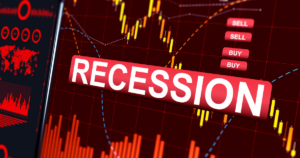The world of forex trading offers immense opportunities for profit, but it also comes with its fair share of risks. To navigate this complex landscape, many traders turn to forex demo accounts as a valuable tool. These simulated trading environments allow traders to gain experience, test strategies, and familiarize themselves with the intricacies of the market without risking real money. In this article, we will delve into the benefits and drawbacks of forex demo accounts, addressing common questions and providing valuable insights.
Benefits of Forex Demo Accounts:
- Risk-Free Experience: One of the primary advantages of demo accounts is the ability to gain valuable trading experience without the fear of financial loss. Novice traders can familiarize themselves with trading platforms, tools, and market analysis techniques. They can also develop and refine their trading strategies, building confidence along the way.
- Strategy Testing: Demo accounts provide traders with the opportunity to test and fine-tune their strategies. By experimenting with different indicators, time frames, and asset classes, traders can identify what works best for their individual trading style. Moreover, they can learn how to effectively manage risk by setting stop-loss and take-profit levels.
- Platform Familiarization: Each broker offers a unique trading platform with specific features and tools. Using a demo account, traders can explore these platforms, understand their functionalities, and determine which one aligns with their trading preferences. This familiarity can significantly enhance their trading efficiency and decision-making.
- Customer Support Evaluation: Demo accounts also enable traders to assess the quality of a broker’s customer service and support. By interacting with the support team, traders can evaluate their responsiveness, professionalism, and knowledge. Prompt and reliable customer support is crucial for traders, especially during critical trading situations.
Drawbacks of Forex Demo Accounts:
- Lack of Emotional Involvement: One significant drawback of demo accounts is the absence of real trading emotions. Fear and greed play a crucial role in decision-making when real money is at stake. Demo accounts cannot replicate these emotions, and traders may not fully understand the psychological challenges associated with live trading.
- Unrealistic Trading Conditions: Demo accounts often offer faster execution speeds and better spreads than the real market. While this seems advantageous, it can create a skewed perception of actual trading conditions. Traders may experience more success in a demo account, leading to overconfidence and unrealistic expectations in a live trading environment.
- Complacency and Delayed Transition: Some traders may become overly reliant on demo accounts, delaying their transition to real trading. The absence of financial risk in demo accounts can breed complacency, hindering traders from experiencing the true challenges and rewards of live trading. It is crucial for traders to recognize the limitations of demo accounts and transition to live trading once they have gained sufficient experience and confidence.
Answering Common Questions:
- Are Forex demo accounts suitable for beginners?
Yes, forex demo accounts are highly recommended for beginners as they provide a risk-free environment to learn and practice trading skills. - Can I trade real cryptocurrencies in a forex demo account?
No, forex demo accounts usually offer simulated trading only for forex currency pairs. If you want to trade cryptocurrencies, it’s best to use a dedicated crypto demo account or a platform that supports crypto trading. - How long should I use a demo account before transitioning to live trading?
The duration varies for each trader, but it is generally recommended to use a demo account for a few months to gain sufficient experience and confidence before transitioning to live trading. - Can I open multiple demo accounts with different brokers?
Yes, most brokers allow traders to open multiple demo accounts, which can be beneficial for comparing different trading platforms and strategies.
Key Takeaways:
Forex demo accounts serve as invaluable tools for traders to gain experience, test strategies, and familiarize themselves with trading platforms. They offer a risk-free environment that allows traders to refine their skills and develop confidence. However, it is crucial to recognize the limitations of demo accounts, including the absence of real trading emotions and the potential for unrealistic trading conditions. Traders should use demo accounts as a stepping stone towards live trading and make the transition once they have acquired sufficient experience and confidence.
In conclusion, by utilizing forex demo accounts effectively, traders can enhance their trading skills, minimize risks, and set themselves up for success in the challenging world of forex trading.








